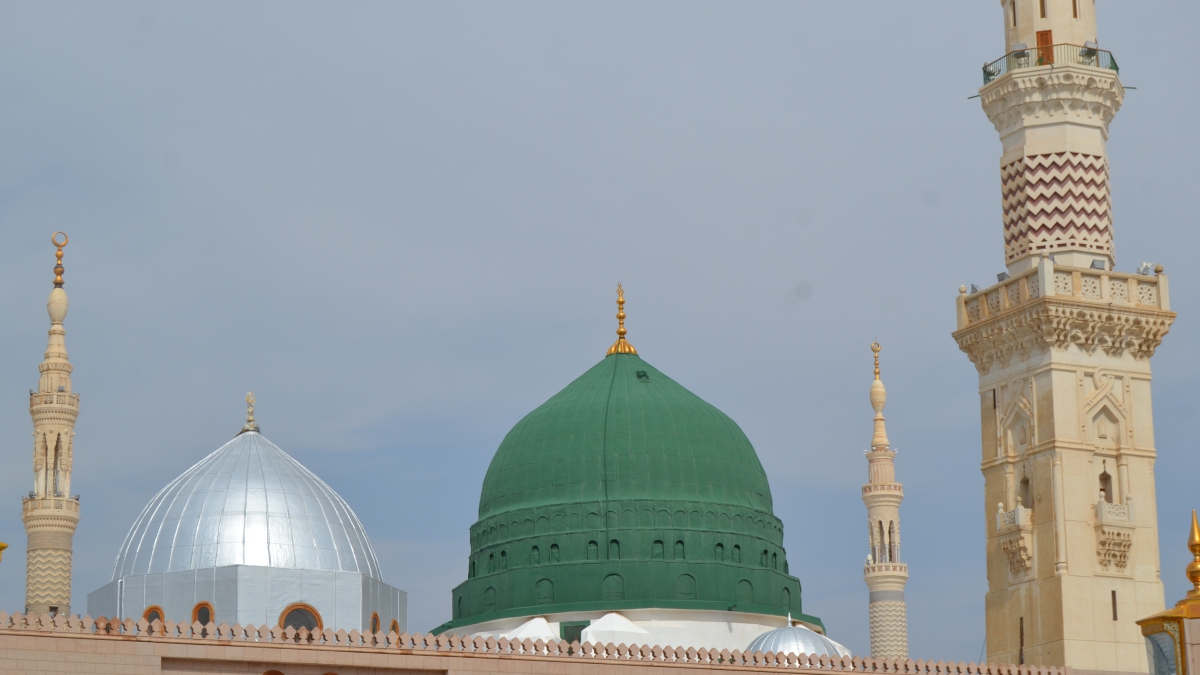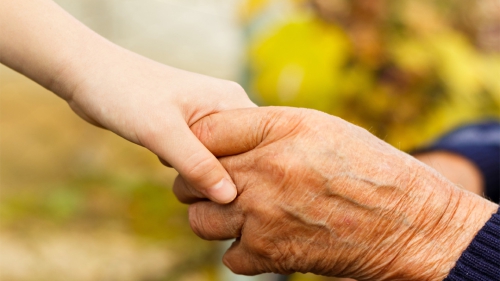Establishment of Quranic State in Medina by the Prophet (PBUH)

As we know, after the migration, the Prophet (PBUH) and his small band of companions were helpless refugees in Medina. But the Quraysh did not leave them alone even there. They kept on attacking them with the largest army they could muster. These refugees were weak; and the local converts to Islam were also not that powerful either. The Prophet (PBUH) and companions were living among them as helpless refugees facing covert machinations inside Medina as well as overt external threats from Quraysh. Under this hostile and challenging situation, creating a Quranic State in Medina by the Prophet (PBUH) and his companions was no less than a miracle as acknowledged even by non-Muslim scholars (e.g., Lamartine - Histoire de la Turquie, Paris 1854, Vol. II, pp. 276-77).
Characteristic of the Quranic State
History shows that Arabs did not have any concept of state or government. They led a tribal life. Under these conditions creating a state based on Quran’s system of collective consultation principle (42:38) where every human was respected (17:70), was not just unique in Arabia but even in the entire world at that time – where although states and governments were there but they were all autocratic and dictatorial. Even now, when social, economic, and political conditions have advanced much further, there is no state or government like the one the Prophet (PBUH) established in Medina. Even in this day and age nations are not able to grasp: what was the kind of government that the Prophet (PBUH) established in Medina where there was no ruler per se – whether an individual or group or a parliament. Allah was the sole ruler of that government but He is completely invisible and does not come in front. So, how He could rule? He rules through His Book, the Quran. The Quran is His constitution and He rules through His laws contained in His Book revealed to humankind. He does not allow any human or group of humans to interfere in His rule of law (6:57; 12:40). Allah did not allow even the Prophets to rule over people (3:79). Every human is equal before Allah’s laws. Even the Prophet (PBUH) did not have authority to rule over people (88:22). He also obeyed Allah’s orders (that he enforced in Medina) as everyone else (6:163; 39:12).
Prophet’s heartfelt desire
But the Prophet (PBUH) was feeling some emptiness in his heart and was looking towards the heavens and praying to Allah about fulfilling his certain inner wish. What was the wish that was making the Prophet (PBUH) silently pray to Allah again and again? Well, the Prophet (PBUH) was in Medina but the Kaaba was in Mecca under the custody of Quraysh. Although Kaaba as such is a small cube shape structure built very modestly, but it is the dominant symbol of Islam. It stands as a powerful symbol for the Universal Charter of the Quranic system of life. Moreover, Allah has called it “My House (2:125).” In modern terminology as the Central Capital of the Quranic government, it represents its ideal, its mission, and its vision.
The Quran says about Kaaba:
إِنَّ أَوَّلَ بَيْتٍ وُضِعَ لِلنَّاسِ لَلَّذِي بِبَكَّةَ مُبَارَكًا وَهُدًى لِّلْعَالَمِينَ
Lo! the first Sanctuary appointed for mankind was that at Becca, a blessed place, a guidance to the peoples (3:96) – [Pickthall].
The first House ever selected for the entire humankind was in Makkah. It was from this place that humanity was destined to get the guideline and the fundamental Law which would ensure stability and nourishment for all. Ibrahim (PBUH) and Ismail (PBUH) built this small cubical house. Its extraordinary importance can be judged by the fact that Allah the Almighty, the Creator of the entire Universe, calls it as “My House” (2:125). So, how could Prophet (PBUH) feel okay if this Allah’s House was under the control of the enemies of Islam, the Quraysh? Whatever thing Allah calls His own belongs to the entire humanity. Therefore, Kaaba – being Allah’s House belongs to humanity as whole.
Constituting Universal Brotherhood of humankind and its representative symbol
The ultimate goal of humankind according to the teaching of the Quran is (2:213):
كَانَ النَّاسُ أُمَّةً وَاحِدَةً
The Quran wants to build universal brotherhood of entire humankind based solely on humanity. This can only be done by breaking down all barriers – no matter what the basis and justification of those barriers are – that separate human beings from human beings. This universal brotherhood of humankind must have a symbol to represent it, and that symbol is Kaaba. This is the position of Kaaba in the world in the eyes of the Quran, i.e., in the eyes of Islam. Its importance in today’s terminology is that when we say Washington then this does not mean a city but it means the political center of the country’s ideological underpinnings. So, Kaaba stands for the ideology of the system representing the universal brotherhood of humankind. That is why Muslims are required to make Kaaba as the center of focus of their life:
فَوَلِّ وَجْهَكَ شَطْرَ الْمَسْجِدِ الْحَرَامِ ۚ وَحَيْثُ مَا كُنتُمْ فَوَلُّوا وُجُوهَكُمْ شَطْرَهُ
(2:144) – Turn your face towards Kaaba wherever you may be, and make it the focus of your life in harmony with the universal values and principles that it stands for.
It is important to note that when we hear the statement “Washington says this,” then it does not mean a city but the system of life that it stands for. In the same way when we say that our Qibla is Kaaba then it means that our locus of life revolves around the system of life the Quran proclaims as Deen, whose perceptible symbol is the Kaaba.
Deen is a collective system of life that covers socioeconomic, political, and all aspects of individual as well as collective life. Fourteen hundred years ago, the Quran gave a collective system of life based on clear concepts and ideology of life of universal welfare of humankind, and a visible symbol (Kaaba or Qibla) to represent this ideology of life; and asked its adherents to remain focused towards the mission and goal represented by Kaaba no matter where they were on earth. The Quran asked its adherents to establish a nation-state and its governance based on this universal ideology represented by Kaaba as its physical symbol.
This was the position of Kaaba in Deen. But when Deen turned into Madhab then Kaaba became a symbol of religious rituals. For example, before every prayer every Muslim makes an intention to pray by saying: “my face is facing towards Kaaba.” This has become now the goal of Kaaba – just as a ritual to recite that our face is towards it during prayer. Muslims are very particular and meticulous to make sure that the mosques face exactly toward Kaaba. Muslims in millions of Mosques throughout the world physically face towards Kaaba but their hearts and souls are not united in the obedience to the Laws of Allah for which Kaaba stands for as a symbol. Rituals and words remain but their meaning and essence have disappeared. There are hundreds of Muslim nations and governments in the world. Each one has its own rules and laws for governance. Some of them are even fighting and killing each other. But when they stand for prayer they all face Kaaba!
This is what has remained as far as Kaaba is concerned to Muslims – wherever they are in the world they face towards Kaaba while praying whereas they were supposed to govern their collective life in unison (wherever they may be in the world) by the ideology, the mission, and the goals for which the Kaaba stands for. Allama Iqbal gives a beautiful metaphor to explain this: birds travel hundreds of miles in the sky from their nests without any signposts and signals but wherever they are they always keep in their mind their nesting place and return to it in the evening.
The bird flies ever so more uniquely in the sky
But it always keeps its nest in sight in its mind
This was what the Muslims were supposed to do. We can understand from this why our Prophet (PBUH) was looking towards the heavens yearning to have Kaaba under the control of the divine system and to be its physical symbol. He had established a state and the divine system in Medina. He was in full control of the Islamic government there. Muslims were obeying Allah through His Book, the Quran. But the Kaaba, the physical symbol of the divine system was under the control of Quraysh. The Quran mentions this heartfelt wish of the Prophet (PBUH) thus:
قَدْ نَرَىٰ تَقَلُّبَ وَجْهِكَ فِي السَّمَاءِ ۖ فَلَنُوَلِّيَنَّكَ قِبْلَةً تَرْضَاهَا ۚ فَوَلِّ وَجْهَكَ شَطْرَ الْمَسْجِدِ الْحَرَامِ ۚ وَحَيْثُ مَا كُنتُمْ فَوَلُّوا وُجُوهَكُمْ شَطْرَهُ ۗ وَإِنَّ الَّذِينَ أُوتُوا الْكِتَابَ لَيَعْلَمُونَ أَنَّهُ الْحَقُّ مِن رَّبِّهِمْ ۗ وَمَا اللَّـهُ بِغَافِلٍ عَمَّا يَعْمَلُونَ
We have seen thee [O Prophet] often turn thy face towards heaven [for guidance]: and now We shall indeed make thee turn in prayer in a direction which will fulfil thy desire. Turn, then, thy face towards the Inviolable House of Worship; and wherever you all may be, turn your faces towards it [in prayer]. And, verily, those who have been vouchsafed revelation aforetime know well that this [commandment] comes in truth from their Sustainer; and God is not unaware of what they do. (2:144) – [Asad]
All those who have Iman on the Quran and Iman in Allah, for them Kaaba must be the locus of their life wherever they are in the world. They must remain focused on the mission of life represented by Kaaba. Now, we can understand the importance of Kaaba in the eyes of the Prophet (PBUH) and why he used to look towards the heavens yearning to have Kaaba under the control of the divine system to represent the Center of ideology of the newly established state of Medina. And Allah promised to Prophet (PBUH) that it will happen. And it did happen.
Hajj became mandatory for Muslims in the ninth year of Hijra. The Mushrikeen Arabs used to consider Kaaba as their religious center and used to perform Hajj. Ibrahim (PBUH) had settled his son Ismael (PBUH) here, and the Quraysh around the Kaaba and in the Hijaz were his descendants. Kaaba was built by Ibrahim (PBUH) and Ismael (PBUH) and it was the center of Arab life even before Islam. They had great respect for Kaaba; and the Quraysh being its custodian were highly revered in the Arab society. Arabs used to perform Hajj and Umrah and used to host special fair for a month during Hajj season. But their Hajj was not what the Quran has prescribed – to renew one’s commitment and faith to sacrifice one’s life for the sake of Islam, i.e., to sacrifice in order to improve the human condition of the world.
Topics: History, Humanity, Islamic Law (Sharia), Kabah, Madinah (Medina), Makkah (Mecca), Prophet Ibrahim (Abraham), Prophet Ismail (Ishmail), Prophet Muhammad (S), Quran, Quraysh, Shura
Views: 4539
Related Suggestions

















